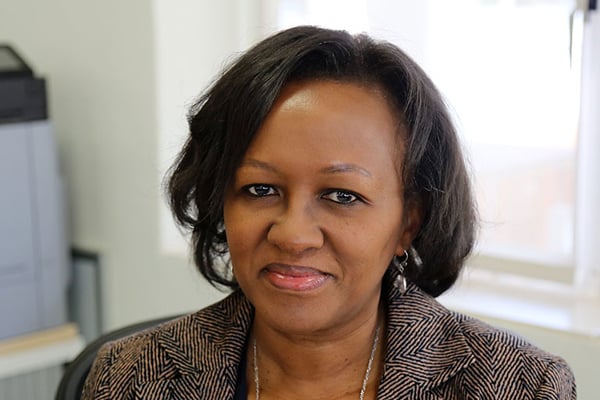Prime
Poverty worsened during Covid-19, says World Bank

Closed shops downtown Kampala after President Museveni announced a lockdown due to Covid-19 in March last 2020. PHOTO / FILE
What you need to know:
- The report also reveals that despite an improvement between October 2020 and April 2021, income was still below pre-Covid-19 levels for at least one-third of households before the onset of the second wave of the pandemic.
The World Bank 18th economic update on Uganda, among other things, has revealed that poverty increased significantly after the first lockdown from March –June 2020, and may have risen again given another shift of workers to agriculture and the slow recovery of household income.
The report, which was released at Uganda Manufacturers Association (UMA) show ground at Lugogo yesterday, reveals that despite an improvement between October 2020 and April 2021, income was still below pre-Covid-19 levels for at least one third of households before the onset of the second wave of the pandemic.
“According to the latest Uganda National Household Survey (UNHS), even though overall poverty in 2019/2020 was slightly lower than in 2016/2017 (20.3 versus 21.4 percent), poverty in the Covid-19 period was significantly higher than in the pre-Covid-19 period. It increased from 18.7 percent during the first Covid-19 wave to 21.9 percent during the first Covid-19 wave in Uganda,” the report states.
To ensure an inclusive recovery, the World Bank says widespread coverage of the vaccine is critical, as well as immediate policy actions in three key areas, including opening the schools with safeguards to minimise disease transmission.
The other key area is to prioritise medium and small enterprises (MSEs) for job creation during the economic recovery. The World Bank says MSEs will need affordable finance to recapitalise their businesses and make investments.
The report authors stress the importance of maintaining prudent and transparent fiscal and debt management. Uganda still has a reasonable fiscal and debt position that needs to be protected to ensure smooth and stable recovery.
The theme for the 18th edition of Uganda Economic Update was ‘Putting Women at the Centre of Uganda’s Economic Revival’
The report points out that Uganda continues to face gender inequality in economic empowerment and economic outcomes, despite closing gender gaps in rates of labour force participation and entrepreneurial activity.
In a nutshell, the report states that improving women’s economic empowerment will involve, inter-alia, bringing more women into small and medium enterprises (SMEs).

R. Mukami Kariuki, World Bank country manager.
The report states that gender gaps in paid work and business ownership have expanded during the Covid-19 pandemic.
Ms Margarita Puerto Gomez, a senior social development specialist at the World Bank, who presented part of the report, said Uganda continues to face gender inequality in economic empowerment and economic outcomes, despite closing gender gaps in rates of labour force participation and entrepreneurial activity.
“Women earn less than men, and according to the Uganda Economic Update (UEU), increasing women’s earnings to match men’s would boost national wealth by 11.8 percent ($1,619 or Shs5.7m per capita),” she said.
The World Bank country manager, Ms R. Mukami Kariuki, said as a result, Uganda has a long way to go in its quest to build-back-better, pointing out that women’s economic empowerment is key to quickening and strengthening Uganda’s revival.
Ms Kariuki said in a nutshell, women’s economic empowerment is not only the right thing to do and a core development objective, but also smart economics.
Commenting on the report, the Permanent Secretary in the Ministry of Health, Dr Diana Atwiine, said the bottomline in economic recovery is vaccination and maintaining standard operation procedure (SOPs).
“There is no shortcut to economic recovery without vaccines,” she said.
The Minister of Gender, Labour and Social Development, Ms Betty Amongi, said the Parish Model is one of the key steps the government is undertaking to lift up women participation in economic development.




